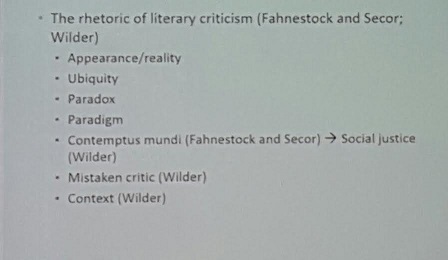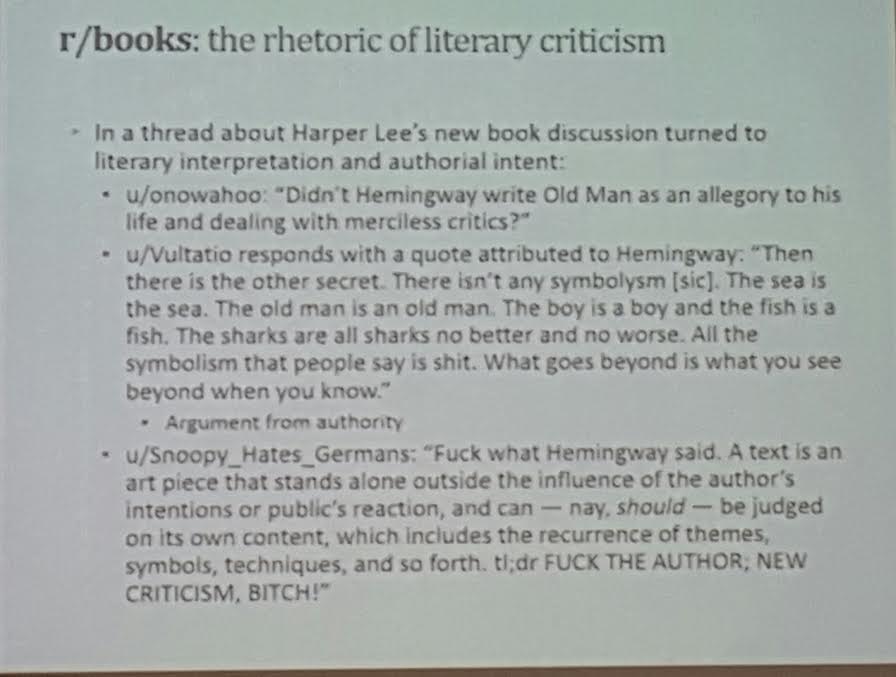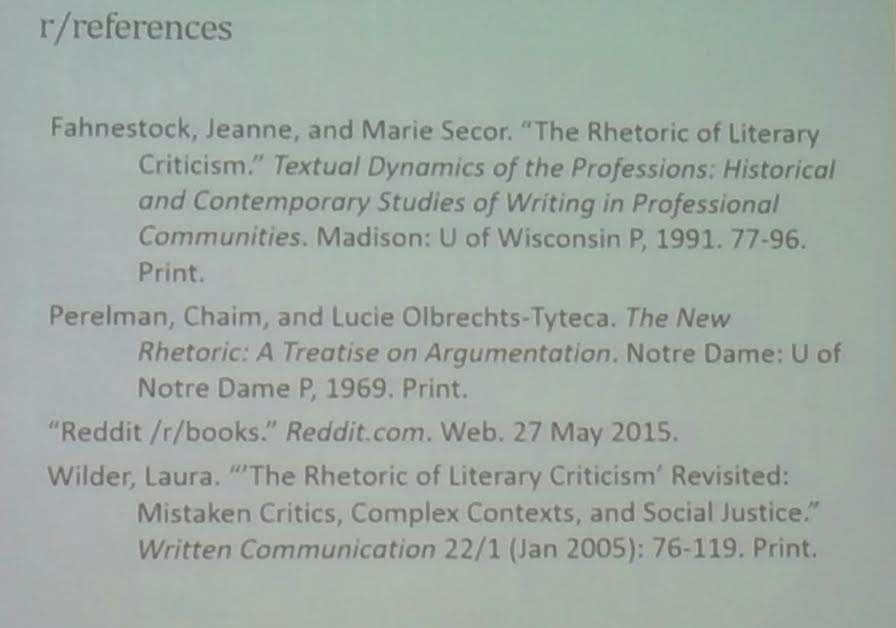Panelist
Christopher Basgier, University of North Dakota
Review
Of the four originally scheduled speakers, only the first—Basgier—was able to present for this panel. Basgier’s paper reported on an ongoing project analyzing points of comparison between the types of analytical moves used by academic literary critics and by online participants on literature-themed discussion boards. His paper borrowed from Fahnestock and Secor’s Rhetoric of Literary Criticism and its catalog of the basic argumentative moves of academic critics to compare the rhetoric of the two formats. Basgier’s slide helpfully listed the 7 distinctive types of arguments:

Basgier posed the question–as he noted that the project is still looking at more sites–whether these moves work for online reviewers of literature. Basgier’s conclusion so far is that the rhetorical practices do cross and overlap, if not perfectly or consistently.
Basgier presented examples of online discussions and analyzed their rhetorical tactics. His first example covered the announcement that Harper Lee’s sequel to To Kill a Mockingbird was being published. This event was covered widely in social media, and the book is widely assigned in schools, so interest among critics and the general public was substantial. Basgier reproduced one thread of comments, which questioned whether Lee’s authorial intentions were being honored with the publication:

Basgier read this as a form of the “mistaken critic” move and the debate over authorial intention behind New Criticism. He continued with other examples of debate over texts focusing on differences between the text and the screen adaptation, including of Lemony Snicket’s work and Jim Carrey’s performance, and critiques of Douglas Adams’ books.
Basgier ended by exploring possibilities for future work analyzing online literature discussions. He noted that the importance of community building in online forums, and the confirmation of values through knowledge of specific texts, merit more analysis in understanding the rhetoric of these discussions. Basgier ended with a slide listing his references, which I find to be a helpful practice for presenters, since it’s difficult to catch all the works cited in the presentation while listening and taking notes.

The Question and Answer session was substantial and engaged—one side benefit to having a small panel and audience is that the presentation can have the atmosphere of a seminar. One audience member brought up the relevance of this work in bringing connections between literature and rhetoric into composition classes. Another saw a continuation of earlier canon debates in the emphasis on knowing and sharing set texts, and there was some discussion among the attendees of the fairly conservative, white male make-up of many online forums that might result in a more traditional canon.
Basgier’s opening question about borders between academic and online criticism re-emerged in the discussion. One member of the audience noted that PMLA published an article on Amazon reviews for Kite Runner, which, like To Kill a Mockingbird, has become a standard for many school assignments.
The session ended a bit early, as might be expected, but the detailed material and the engagement and participation of the audience provided a worthwhile experience. While I would hope future conferences have fewer cancellations, it’s gratifying when presenters make good use of the expanded time allowed.
